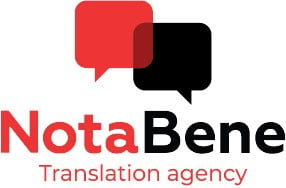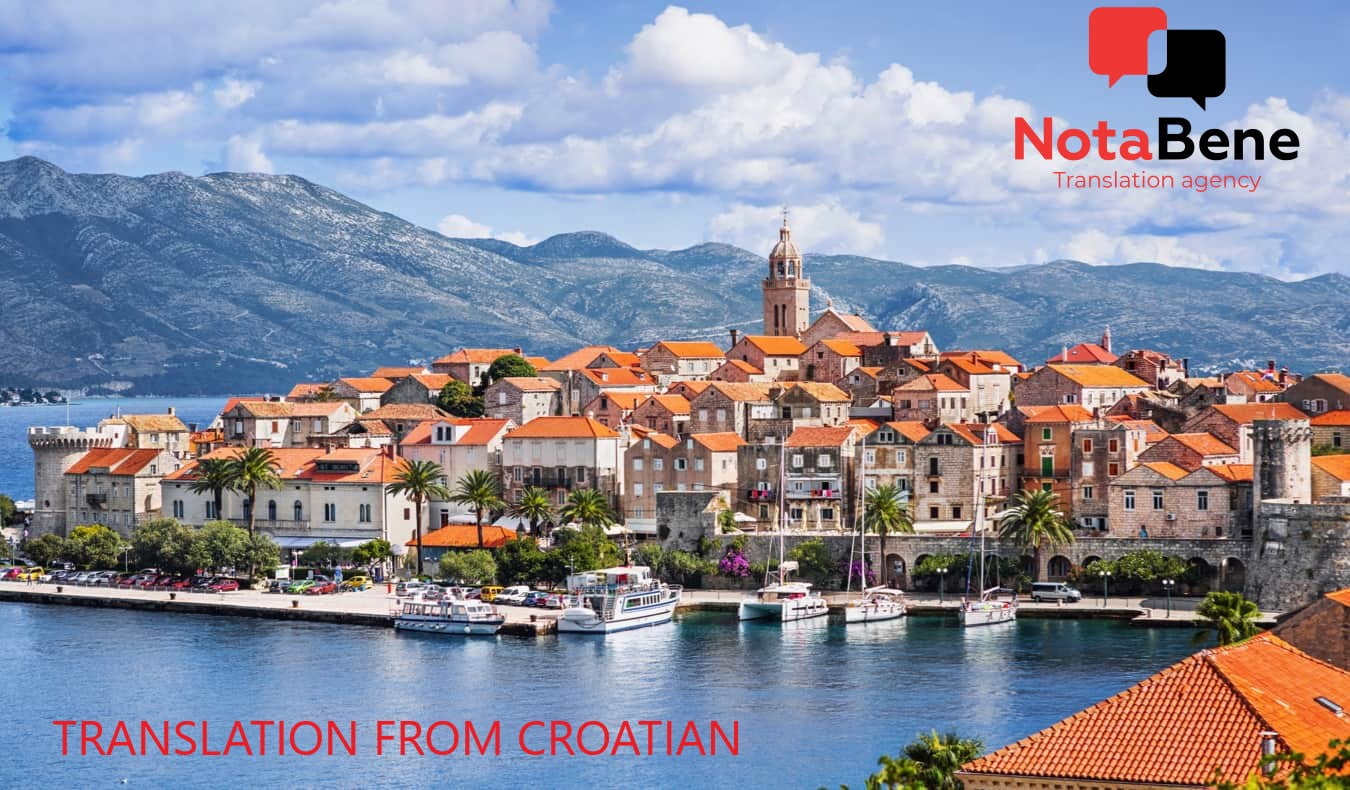Order translation from Crotian or into Croatian at NotaBene Agency in Warsaw and Gdansk!
NotaBene Translation Agency is an experienced supplier of translation from Croatian into Polish and vice versa for any documents or texts.
What types of texts does NotaBene Translation Agency work with?
– Technical translation from Croatian — we translate any texts in electronics, aviation and shipbuilding, agriculture, industry, oil and chemistry, etc. For this purpose, we pick translators who understand the specific nature of a given industry.
– Translations for the IT sector from and into Croatian for the localization of applications, games, software and websites.
– Medical translation from Croatian — books, manuals, articles in specialized printed and online publications, clinical records, correspondence with medical institutions, transcriptions and translations of test results, instructions for medicines and many other types of texts. This kind of translation requires flawless knowledge of medical terminology and focus on detail to rule out ambiguity, because the result can affect the health or life of many people.
– Legal translation from Croatian: statutes, registration deeds, articles of incorporation, contracts, powers of attorney, court records and many other similar documents.
– Financial translation: this type of translation includes the translation of balance sheets, tax returns, payment invoices, waybills, tender documents, etc.
– Literary or fiction translation is the translation from Croatian of fiction, marketing and advertising materials. Unlike the previous types of translation, in this case there is more room for a translator’s creativity, because there is no need for “word for word” translation. The most important thing is that the translated material produces the same impact as the original, while an excellent translation may even make it better.
Please note that the translation mentioned is certified by an agency seal only. If you need sworn translation, kindly notify your manager in advance. Sworn translation is possible only for certain languages.
How to have a translation from Croatian into English, Polish, Russian, Belarusian or Ukrainian and vice versa?
First of all, you need to order it. To do so, send your source text and specify your requirements for the translation from Croatian. A customer service specialist at the Nota Bene Translation Agency will prepare a ToR based on the specific features of the order. If the project involves more than one job, a unique glossary is created to ensure the consistency and proper use of terminology.
An entire team of several professionals normally works on a job: a translator, proofreader, editor, quality controller, layout designer and manager who will be available during working hours. In order to rule out human errors, the translation agency uses modern services to check punctuation, idioms, numerical expressions, and formulas. The material is also reviewed by the chief editor.
Confidentiality of translated data is ensured by a special NDA, whenever a customer wishes to have one. Documents can be delivered to any country.
We very rarely apply additional fees for “urgency” or “specialized subjects”, so you can be sure that the price will not rise when the project is delivered. It is true that in rare cases, such as “we need to have it yesterday” instances, and when a customer is willing to pay a higher rate for the team to work outside normal working hours, at night or on weekends, the fee might be increased, but this is always negotiated with the customer in advance.
Croatian
Croatian belongs to the South Slavic languages and is spoken mainly in Croatia, Bosnia and Herzegovina, where it is the official language, but also among Croatian communities in other countries (e.g. the Molise region in Italy). The Croatian alphabet is based on the Latin script.
The modern literary Croatian language was formed on the basis of literature that goes back more than nine centuries, written in a mixture of Church Slavonic and local dialects. The first written sources in Croatian appeared in the 9th century, when the Old Church Slavonic language was adopted as the language of divine service and was also used for secular purposes. The most important monument of the old Croatian language is the Basčanska slab, dating back to the 11th century. It is a huge stone slab found in the small church of St Lucija on the Croatian island difficult to pronounce – Krk.
The text on the slab was written in Glagolitic script and contains important information about the history of Croatia, including a mention of the Croatian king of that time, Dmitar Zvonimir. The standardisation of the Croatian language began with the publication of Faust Vrancic’s Dictionarium quinque nobilissimarum Europae linguarum-Latinae, Italicae, Germanicae, Dalmatiae et Ungaricae in Venice in 1595, and the publication of the first Croatian grammar by Bartul Kasic in 1604 (Institutionum linguae illyricae libri duo). The Jesuit Kasic’s translation of the Bible into Croatian laid the foundation for the modern Croatian language.
– There are three dialects in the Croatian language whose names are derived from the pronunciation of the word “what”: Čakavski (cha – what), kajkavski (kaj – what) and shtokavski (shto – what) dialects;
– Croatian has ascending and descending tonal stresses which make it sound very melodic;
– There are eight Croatian-language universities in the world. They are located in Zagreb, Split, Rijeka, Osijek, Zadar, Dubrovnik, Pula and Mostar.
We have been in business for over 20 years and during that time we have learned to work well. Trust us with your translation from Croatian and get a great result at a reasonable price!








